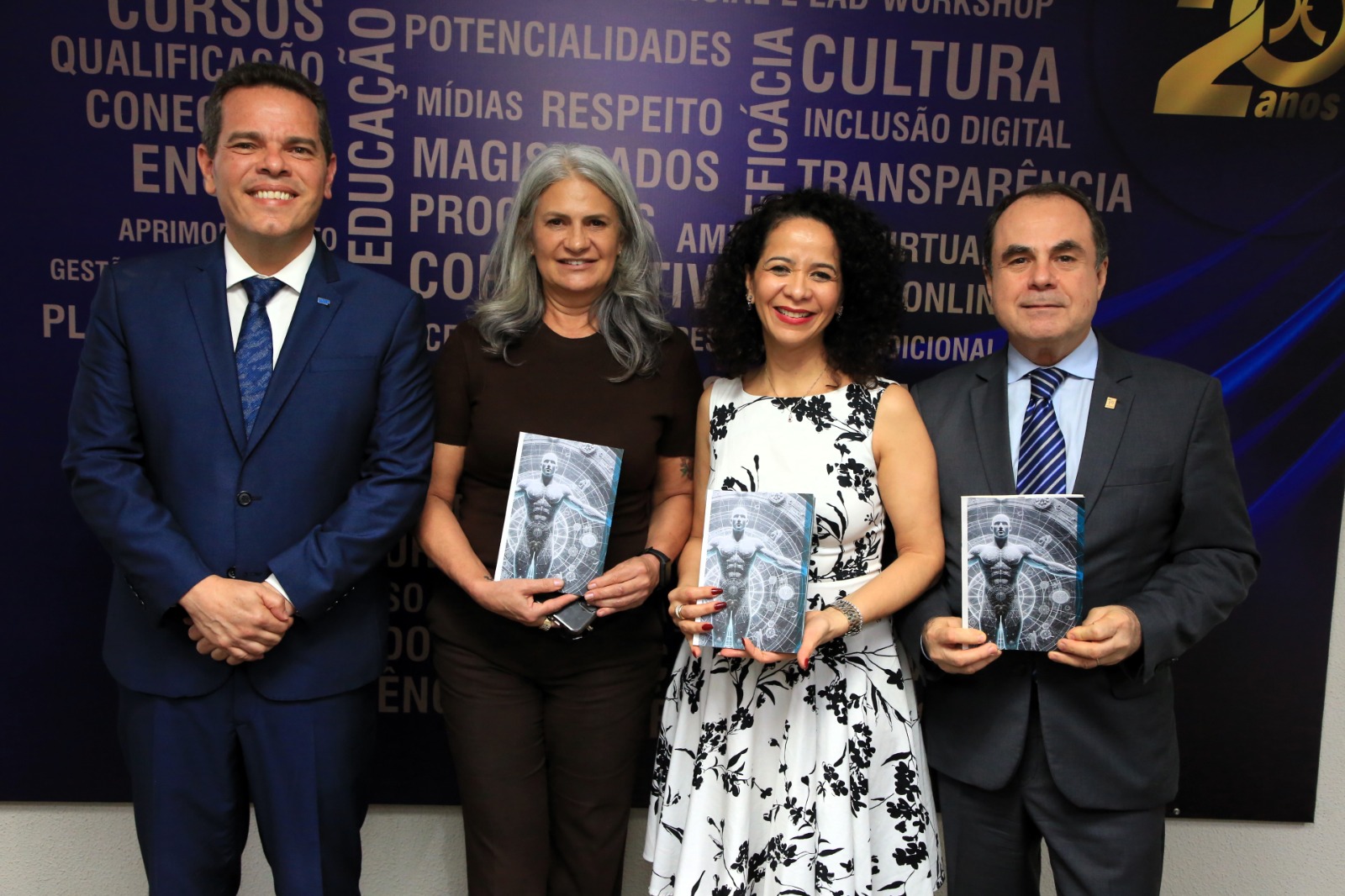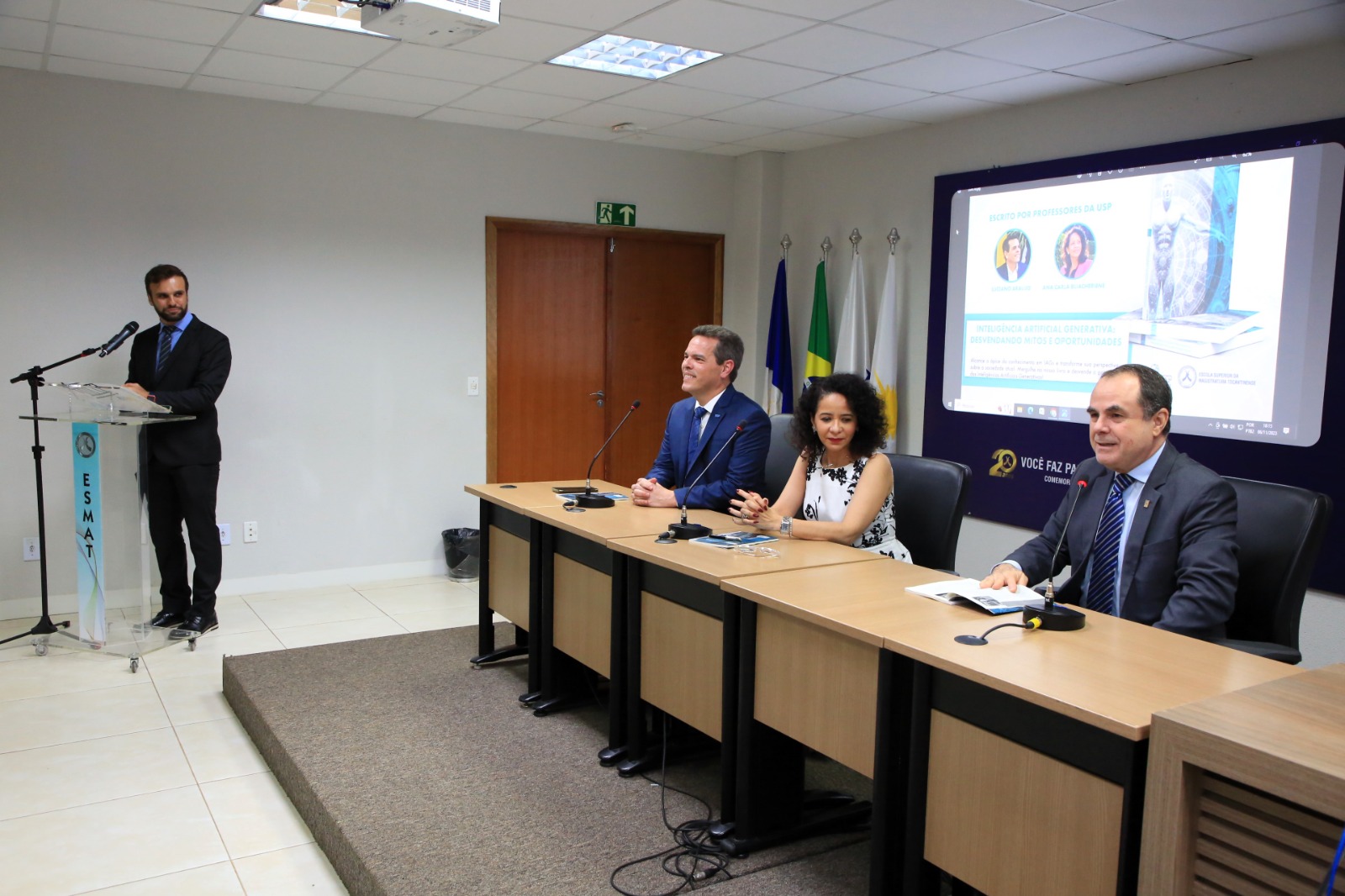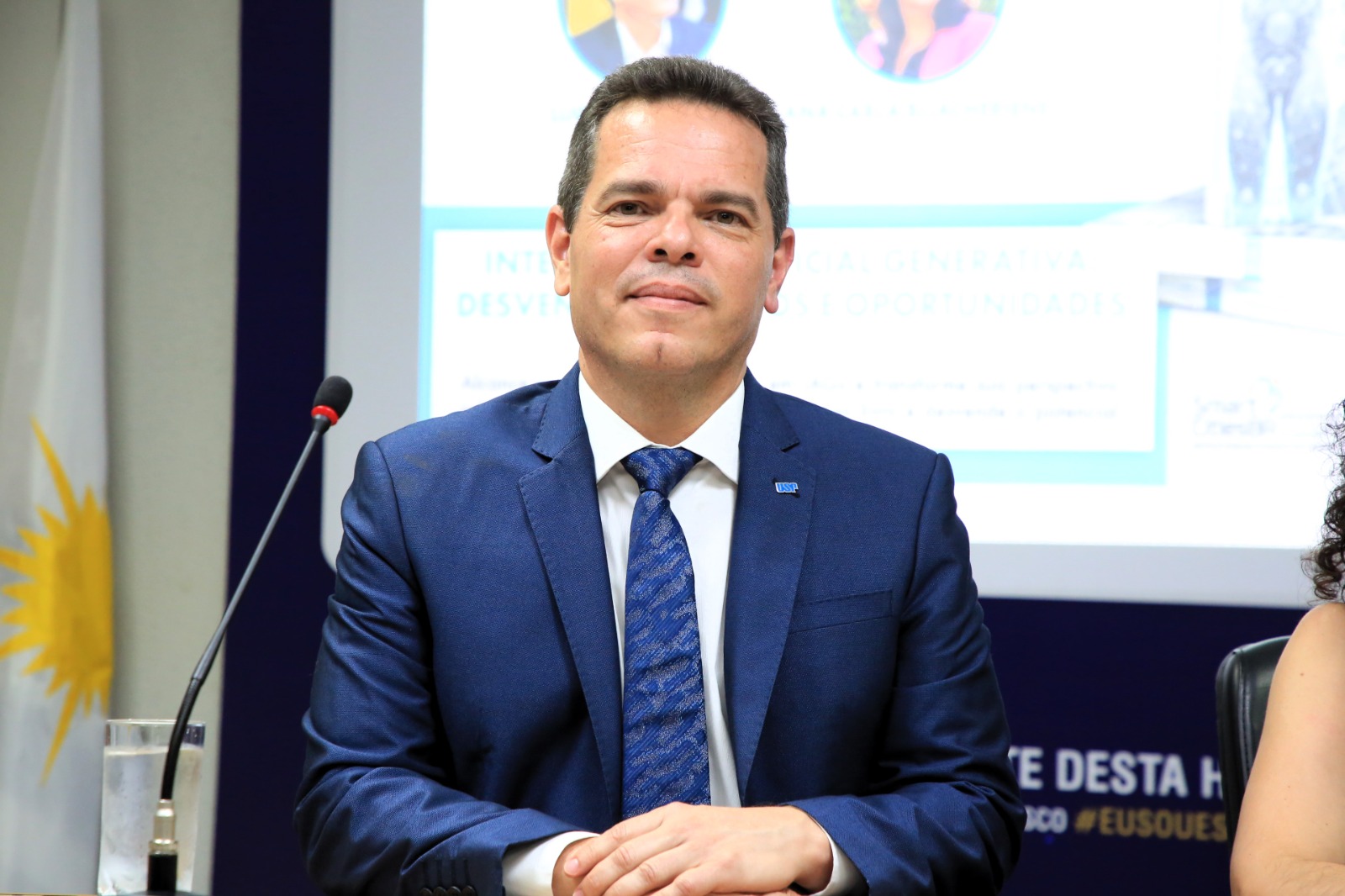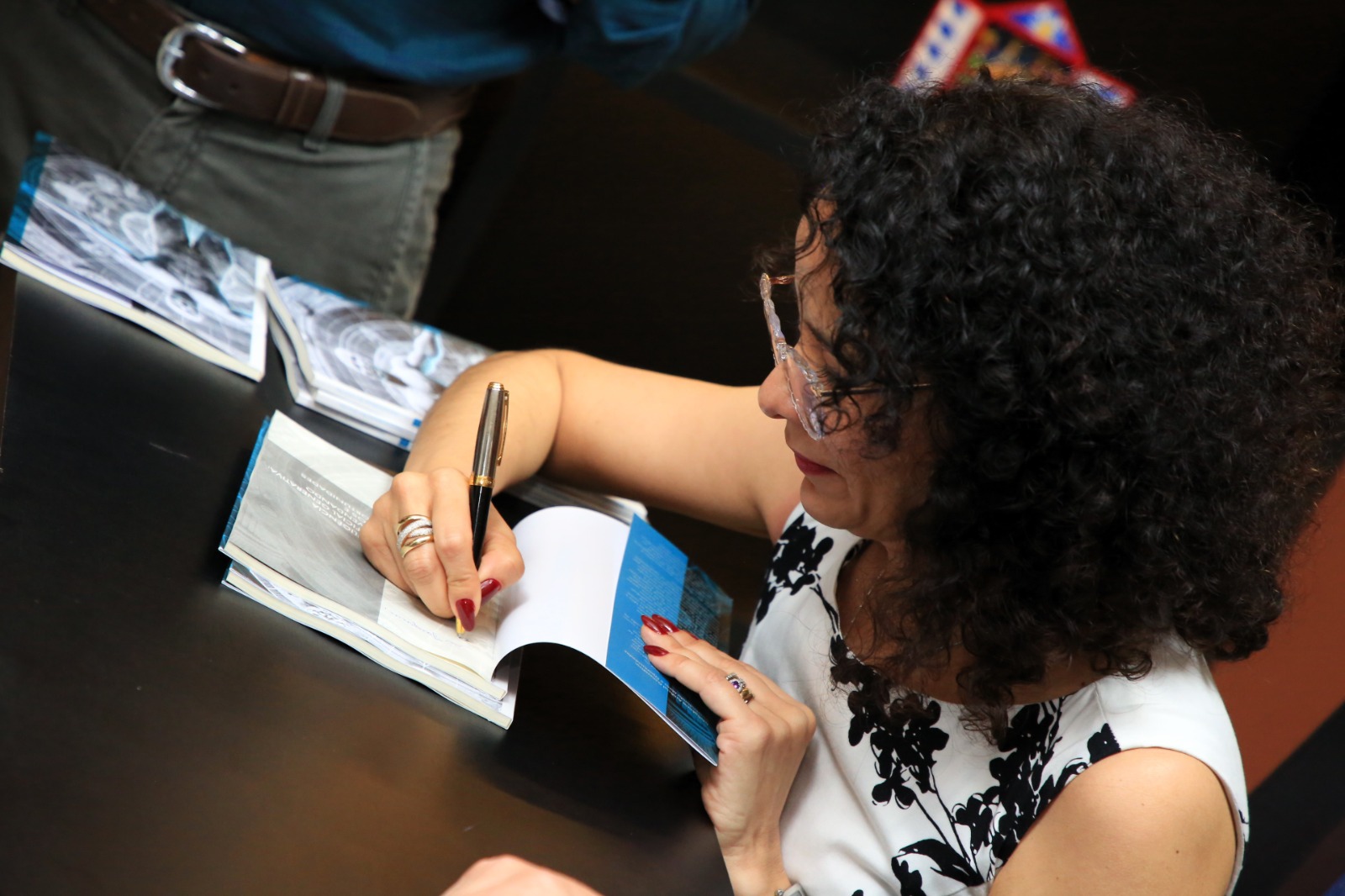
Impacting various sectors of society, Artificial Intelligence has been occupying important spaces not only in the Judiciary, but also in the daily lives of all Brazilians. The pre-launch of the book on "Generative Artificial Intelligence: Unraveling Myths and Opportunities", the result of a partnership between the Superior School of the Judges of the State of Tocantins (ESMAT) and the University of São Paulo (USP), took place on Monday evening (November 6th) in the auditorium of Esmat.
The book, written by the USP Professors Luciano Araújo and Ana Carla Bliacheriene, explores and contextualizes structuring concepts for an enterprising and innovative understanding of the Generative Artificial Intelligence. During the meeting, Justice Marco Villas Boas, General Director of Esmat, who wrote the foreword book, highlighted the impact of the theme and, consequently, of the work, on the Brazilian judiciary.
"I would like to congratulate both professors on this great little work that provides us with fundamental explanations about our interaction with artificial intelligence, with machines. This new cycle of human existence needs greater understanding and regulation, and will certainly generate many solutions for the day-to-day work of the Judiciary in the development of its internal processes and the provision of justice," he said.

"It was a great achievement for us to have started this institutional relationship between Esmat and USP. It's a great joy, we're actually doing a pre-launch here in Palmas in honor of this school that welcomed us, this school that had the courage to bring the topic to its employees, and not just to bring it, but to bring it four times," said Dr. Ana Carla.
In her speech, the professor praised the educational character and commitment of Esmat to promote research and study in order to improve the provision of justice. "This school has had the greatness to put the Judges in the classroom to learn, and has put Judges and civil servers in the classroom to learn about artificial intelligence, this is very symbolic. (...) When we arrived at all the classes, we saw the same thing, in civil servers and Judges, everyone's eyes were shining. Professor Luciano said: "this is a place we have to come back to, this is a place we have to invest in". And we have come and we will come as often as Esmat needs, we will be here to support. And the University of São Paulo will be at the side of the court in everything that is necessary," he said.

For Professor Luciano, the use of generative artificial intelligence brings a series of positive possibilities for the judiciary. "As Professor Ana Carla said, it's always a pleasure to come here to Palmas. We have met people with a transformative vision, who really want to build and make a difference. (...) With these new technologies, they come as a very big transformation that the subject of Artificial Intelligence has been around for over 80 years. This type of AI is the focus of our book; the generative ones are more recent. So all we had before was one type of approach, now we have a new type that can deal with natural language. This allows us to take a leap forward in building solutions. What the government has most of is documents, everything has to be documented, everything has to be registered, etc. It's difficult to deal with this. Now, with these Artificial Intelligences, it's accessible, it brings a series of other possibilities. Analyzing these documents, simplifying them, making them accessible. It's a significant power, and in Brazil we can't give it up," he explained.
Aware of the transformations in all areas of society, Luciano stressed the importance of studies aimed at building solutions with regard to ethical and legal impacts. "We need to prepare ourselves so that we can build solutions that are prepared and adapted to local characteristics. Because one of the issues here is that this artificial intelligence allows personalization, care for each individual, culture, environment, action. This has a great potential for education, for treating people according to the knowledge they have," he said.
The meeting ended with an autograph session by the authors.





